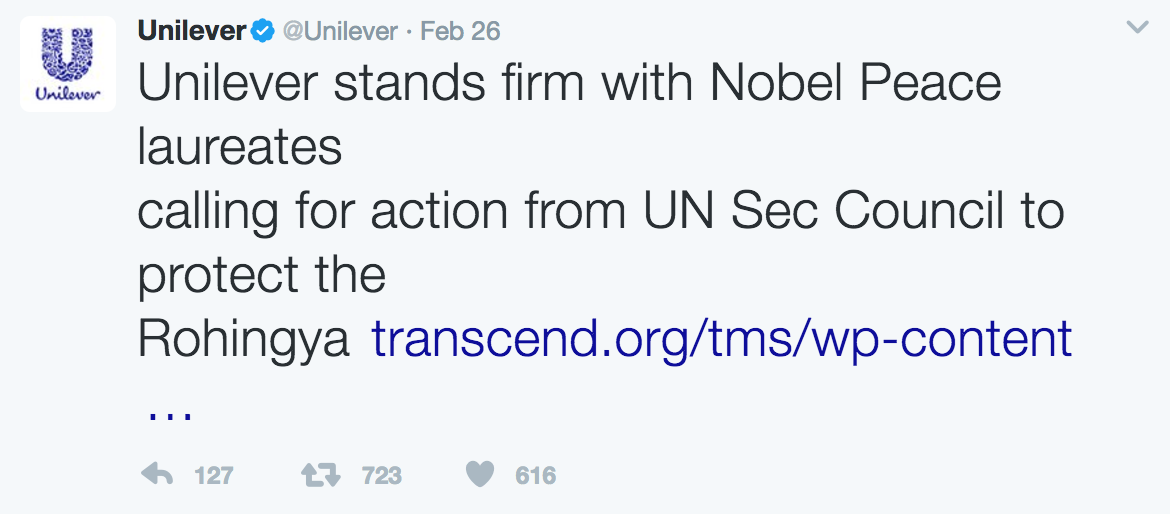Last week, rights activists concerned with the plight of the Rohingya Muslim minority in Myanmar launched a new strategy in an effort to end the repression characterized by the United Nations recently as tantamount to “ethnic cleansing”. They sought the help of business, and business responded.
Activist Jamila Hanan, spearheading the new campaign #WeAreAllRohingyaNow, says that previous attempts to mobilize government and diplomatic action have often met with a lackluster response.
“After years of trying to get politicians to move on the Rohingya issue, it became clear that they were hesitant because Myanmar is important for investors. We, therefore, decided to instead reach out to companies directly.”
Hanan and a core group of organizers for the campaign first sought the help of Paul Polman, CEO of Unilever, a company with major investments in Myanmar.
Polman had previously signed a letter of concern about the Rohingya along with other prominent public figures last December, and he replied to her immediately.
After a brief correspondence, the campaign published an open letter to Polman asking Unilever to take a stand, and activists took to social media to convince the company to respond.
“Our approach is outreach, not pressure,” Hanan explains. “We believe companies need to be encouraged to speak out because it is ultimately in their own interests to do so. More and more people are concerned about the ethnic cleansing in Myanmar; when companies remain silent it is bad for their reputation, and it turns people away. We are not asking corporations to do anything that conflicts with sound business strategy.”
#WeAreAllRohingyaNow consists of veteran human rights campaigners, academics, businesspeople, and a broad base of grassroots activists around the world. They have the support of Rohingya organizations both internationally and inside Myanmar.
Hanan says: “We have the capacity to mobilize large scale direct action if necessary, but we would much rather have positive engagement with businesses.”
This unique blend of activism and corporate savvy has worked. On Sunday, Unilever tweeted its commitment as a company to the protection of the Rohingya.
One activist noted: “When Paul Polman signed the letter of concern in December, he did it as an individual, not as a representative of Unilever; but with that tweet, Unilever unequivocally took the same stand.”
Unilever’s tweet received more likes and retweets than almost anything the company has ever posted.
“A company earns consumer loyalty by being loyal to the things they care about,” Hanan says. “We are very happy Unilever has taken a stand, and we look forward to their response to our open letter and hope they will take a leadership role in the coming weeks.”
Hanan and others in the campaign noted that Unilever’s public alignment with the letter Polman signed is a significant step primarily because it commits the company to the protection of the Rohingya and sets a precedent for other companies to follow in using their influence to end atrocities.
Hanan says: “Unilever has invested over half a billion dollars in Myanmar, and they spend a great deal of money lobbying legislatures in the US, UK, and Europe. They have an operating budget equivalent to the budget of the United Nations. Of course, they have tremendous influence on their own without having to defer to others to take action. It is time for Unilever and other major corporations to be proactive and to be part of the solution.”





Reader Interactions